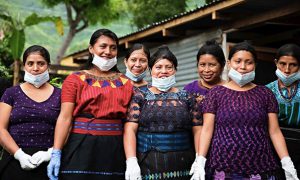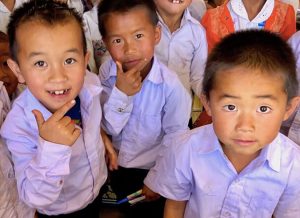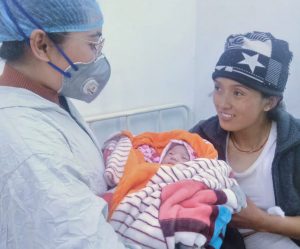GoPhilanthropic focuses on 3 key sectors of development: health, human rights, and education. We are passionate about these sectors because we believe that focusing on organizations that combat these inequities will ultimately lead to better opportunities and improved livelihoods for individuals around the world.
So why did we select health in particular as a key sector?
According to the UN’s Sustainable Development Goals, Goal 3, Good Health and Well Being, or health equity, is achieved when we can ensure healthy lives and promote well-being for all at all ages. While the goal is straightforward, the steps to actually achieving equity include many factors like access to quality healthcare services, safe access to health services, education opportunities, food resources, and even a family’s financial means.
For example, a community’s lack of infrastructure or transportation may make it difficult or impossible for families to visit well equipped hospitals or seek medical attention in an emergency. Compounded with other challenges such as limited education and financial means, the issues become all the more difficult to mitigate. This means that organizations seeking to strengthen health equity need to target and address a multitude of barriers and challenges that a community may face. We know that creating great hospitals and clinics alone is not enough, there needs to be a comprehensive plan to help people receive care and to ensure that hospitals have the services available that meet the needs of their community, including linguistically appropriate care or awareness campaigns to reach rural areas.
We strongly believe that addressing these issues requires leaders and organizations who know the unique challenges of their community and we have worked hard to identify partners who focus on community wide health efforts and initiatives.
For this blog post, we would like to highlight our current health partners and how their work addresses the many factors needed to achieve health equity. In addition, we would like to discuss the impact of COVID and other disasters in our partners’ communities and how it has changed the work and approach of all our partners to focus more on health initiatives.
EntreMundos
In many rural Guatemalan communities, there are currently many challenges in accessing healthcare including poor infrastructure, lack of clinics and services, and individuals with limited financial means. EntreMundos employs a “bottom-up” approach to rural development based on the needs, expectations, ideas, and initiatives of local populations in Guatemala. With a contact database of more than 900 registered NGOs, EntreMundos is well-known nationally, and has become a leader and reference point for NGOs and community groups throughout the country. In their model, the communities, local activists and grassroots participants are actively involved in the decision-making about local development. With the funds they receive, they provide small grants to community initiatives focused on health and hygiene, education, human rights of indigenous populations, community development, and many others.
Laos Educational Opportunities Trust
Laos Educational Opportunities Trust (LEOT) was established in 2006 during a time when Laos was relatively isolated from the rest of the world with a limited number of NGOs. What began as a scholarship for a monk progressed to an entire school run by local Laos teachers, the establishment of capacity-building and community projects, the provision of electricity, and incredible strides in the areas of clean water and sanitation for both their students and the rural communities they support. LEOT works with extremely isolated and marginalized rural villages, conducting and repairing buildings, improving water systems and other projects to improve the health and sanitation of families and communities.
PHASE
PHASE Nepal works in some of the most remote and isolated Himalayan mountain villages in Nepal, providing lifesaving, highly integrated health services and resources to thousands of men, women and children every year. These villages can take up to seven days walking from the nearest road to reach, and are often neglected by other health and development organizations for being too difficult or expensive to support. PHASE services provide a holistic approach to health care with disaster risk reduction, livelihood development, and education services.
There are so many incredible services they provide! In their clinics they have neonatal, maternity, and nutrition care saving the lives of women and children everyday. In addition, they regularly run awareness campaigns and workshops in villages to improve hygiene and sanitation to prevent health outbreaks and illnesses. Through their reports and updates, we can see their extensive services and comprehensive support have raised the standard of care in their target communities.
While we have our designated health partners, since COVID and other recent disasters, almost ALL of our partners have had to adjust their services and programs in response to health inequities in their respective communities. This includes finding ways to increase health access and care through providing direct services, food packages, sanitation packages and hand washing stations, or even medicines! We all learned that without quality health care, continued growth and development of communities will not be possible.
This is why we choose to have health as a key sector and we hope by reading this post you are inspired to learn more about our partners’ life saving work and see how you can contribute to global health equity!



